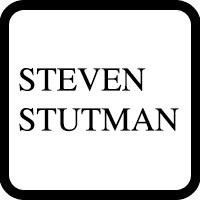Central Islip Wills & Probate Lawyer, New York
Sponsored Law Firm
-
 x
x

Click For More Info:
-
The Michelson Law Office
203 North Lasalle Street Suite 2100 Chicago, IL 60601» view mapBankruptcy, Chapter 7, Chapter 13 Chicago Bankruptcy Lawyer
When your finances are at stake, choose the best. Don't sink deeper in debt. Contact The Michelson Law Office
800-824-6431
Includes: Estate Administration, Living Wills, Wills
John Peter Brooke
✓ VERIFIEDBankruptcy & Debt, Divorce & Family Law, Foreclosure, Wills & Probate, Real Estate
My law firm is a full-service practice specializing in the areas of bankruptcy, foreclosure defense, mortgage/loan modifications as well as other area... (more)
Steven William Stutman
✓ VERIFIEDReal Estate, Consumer Bankruptcy, Wills & Probate, Bankruptcy
Steven Stutman is a practicing lawyer in the state of New York handling Real Estate and Estate matters.
Alissa Joy Wool
Family Law, Wills & Probate, Transportation & Shipping, Corporate
Status: In Good Standing
Andrew D. Blum
Wills & Probate, Family Law, Constitutional Law, Civil Rights
Status: In Good Standing
John Vaughn
Corporate, Business Organization, Criminal, Estate Administration
Status: In Good Standing
N. Richard Wool
Family Law, Wills & Probate, Transportation & Shipping, Corporate
Status: In Good Standing
Alexander G. Vodovozov
Lawsuit & Dispute, Trademark, Intellectual Property, Wills & Probate
Status: In Good Standing Licensed: 24 Years
Algis Anilionis
Copyright, Immigration, Medicare & Medicaid, Wills & Probate
Status: In Good Standing Licensed: 25 Years

 Abraham Michelson Chicago, IL
Abraham Michelson Chicago, IL AboutAbraham Michelson
AboutAbraham Michelson Practice AreasServices
Practice AreasServices


